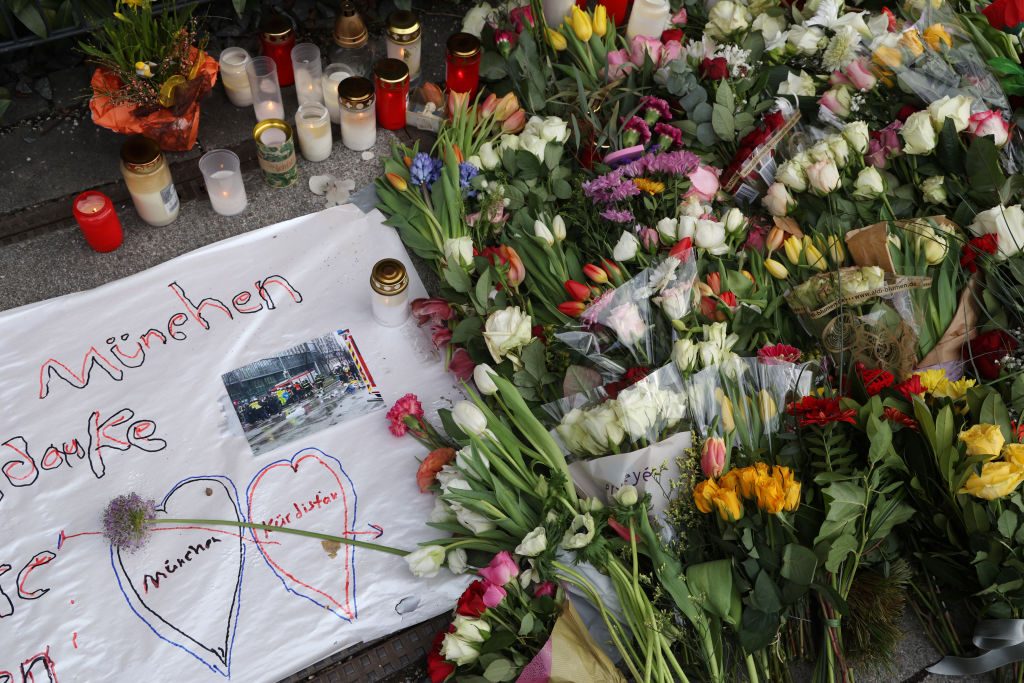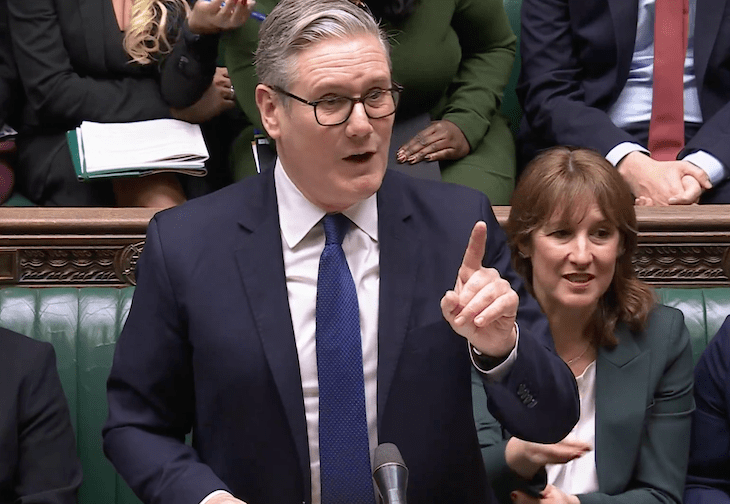There is a new Islamist terror threat in Europe that the French describe as ‘low-cost terrorism’. The expression was deployed in a television interview at the start of this week by Bruno Retailleau, the Minister of the Interior. Warning France that Islamic State is ‘reconstituting themselves in Africa and elsewhere’, Retailleau said that the other menace was the individual extremist acting on his own initiative. Unskilled in bomb-making and with no access to firearms, these ‘low-cost’ Islamists kill with knives or behind the wheel of a car.
One of these ‘low-cost’ extremists was last week jailed for life by a French court. In October 2020, Tunisian Brahim Aouissaoui murdered three Christians with a knife outside a church in Nice. It was a ferocious assault; one of the victims, a 44-year-old woman, was stabbed 25 times.
During his trial, Aouissaoui justified his actions by claiming: ‘You, the West, kill Muslims, women and children. These innocent people who die every day, aren’t they human? Don’t they have families?’
It was a vague and erroneous declaration in any case, since the greatest killers of Muslims around the world are Islamic extremists.Between 1979 and April 2024, Islamists carried out 66,872 attacks worldwide and killed nearly 250,000 people. Of that staggering death toll, 204,937 lost their lives between 2012 and 2024, and most of the victims were Muslims.
The data, compiled by the French think tank Fondapol (Fondation pour l’innovation politique), show that the vast majority of the attacks – 96.7 per cent – do not occur in the West. They take place in the Middle East, North Africa and sub-Saharan Africa, and rarely do they make the western mainstream news.
How many people are aware, for example, that since Christmas 2024, at least 237 Christians have been killed by Islamic State Central Africa Province (ISCAP) in the Democratic Republic of the Congo? In total, since 2017, the Islamist group has murdered 6,000 Christians in this country.
The Islamist attacks that do make the news in the West are small by comparison, although they are growing in number. This year alone, there have been atrocities committed in France (Mulhouse), Austria (Villach) and Germany (Aschaffenburg, Berlin and Munich). The attack in Aschaffenburg, which killed two, including a toddler, was carried out by an Afghan, although police attribute the atrocity to mental instability.
These five attacks have taken the lives of six people, two of whom were run down by a car and the others fatally stabbed. They are in marked contrast to the Islamist terrorism of a previous generation; those who planned and carried out the mass-casualty attacks in Madrid (2004), London (2005), Paris (2015) and Brussels (2016) had been trained overseas and, in some cases, were experienced jihadists.
It is a deliberate change in strategy, brought about by necessity but also a better understanding on the part of the Islamists as to how best to degrade Europe – what they consider the ‘soft underbelly’ of the West, a phrase coined in 2005 by Abu Musab al-Suri, an Islamist military theorist.
Europe’s intelligence services are more effective now than they were a decade ago; this is particularly true in France, where nine Islamist plots were dismantled last year. Much of this success is due to intelligence sharing with other nations, notably Morocco. Last month, Morocco unravelled an Islamic State terror cell in nine towns that was in the process of plotting attacks.
It is harder now for Islamists to travel to and from Middle East training camps unnoticed, hence the rise in ‘low-cost’ terrorism. That’s not to say these individuals are ‘lone wolves’. They may have no direct link with groups such as al-Qaeda and Islamic State, but low-cost extremists have been indoctrinated by their ideology online.
‘The internet obviously plays a key role in the globalisation of Islamist terrorism,’ states Fondapol. ‘It turns out to be a powerful propaganda and recruitment tool. The emergence of social media allows Islamist groups to interact effectively and often anonymously.’
Among the key dates cited by Fondapol in the evolution of Islamic extremism in the last fifty years are 2003 (emergence of Skype), 2005 (YouTube), 2006 (Twitter) and 2010 (Instagram).
A report in last week’s Le Figaro noted that Islamist activity in France has increased alarmingly in the last 12 months. Their strategy, explained a counter-terrorism source, is that of ‘a thousand cuts’: to demoralise their enemy physically and psychologically. ‘This technique is David against Goliath, the little guy against the big guy. And in this type of combat, there are no holds barred.’
It works. Two French teachers have been murdered by Islamists in the last five years, and a growing number of this profession are now self-censoring out of fear; they don’t want to be physically harmed, but nor do they want to be accused of ‘Islamophobia’, a charge that can jeopardise livelihoods in Europe today.
This ‘ideological terrorism’ is probably the most successful strategy of the Islamists. It shatters careers, like that of the Batley Grammar School teacher (who remains in hiding) or Steven Greer, the professor at Bristol University who was falsely accused of Islamophobia by the university’s Islamic society. Although Greer was cleared of any wrongdoing, he said the complaint was ‘based on nothing but lies, distortion and misrepresentation…it was a terrifying experience.’
Though the French have shown more resistance than the British in the fight against the sophistry of ‘Islamophobia’, they too are now submitting. Last week, Lille University cancelled a lecture about the Muslim Brotherhood by Florence Bergeaud-Blackler because she was deemed to be a ‘racist’ and an ‘Islamophobe’. Bergeaud-Blackler has required police protection for two years because she has been threatened with death for writing about Islamic extremism.
In an interview with the Sunday Telegraph at the weekend, Lord Walney, the former Labour MP who served as the government’s independent adviser on political violence and extremism, stated: ‘Islamist extremism and Islamist terrorism is the greatest threat this country faces.’ A similar warning was issued this week in France by Francois Fillon, the former Prime Minister, who said that extremism is ‘gaining ground in Europe, where a growing proportion of Muslim populations are bowing to the rules of a radical, authoritarian, freedom-destroying Islam that represents a real and immediate danger to our values and our way of life’.
A good starting point for Britain would be to scrap the planned definition of ‘Islamophobia’, which would, in effect, proscribe any criticism of Islam. As I wrote last month, the Labour government appears unable to distinguish between criticism of a religion and discrimination against a person because of their religion.
Another imperative is border control. Nice terrorist, Brahim Aouissaoui, arrived in Europe on the migrant route, travelling from Tunisia to the Italian island of Lampedusa, and then to France. This route is still wide open. Last week, 112 migrants rescued off the coast of Libya disembarked in Italy, and the week before, 389 were rescued off the Canary Islands, of whom all but 51 were men.
Perhaps they were all seeking to build a better life in Europe. But who’s to say that among them wasn’t the next Brahim Aouissaoui?








Comments